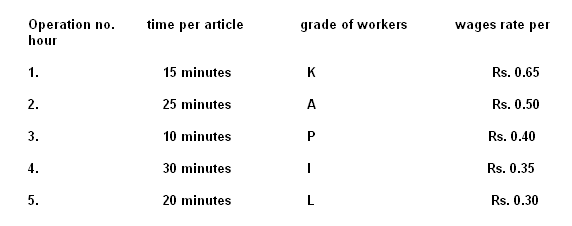access,2,account,86,accountant,95,Accounting,685,accounting definitions,99,accounting ebook,4,Accounting education,85,Accounting Education Ads Help,1,accounting procedure,2,accounting process outsourcing,2,Accounting Software,52,advance,3,advertising,6,africa,7,Amalgamation,6,amendments,16,Amortization,1,announcements,62,Annuity,2,assets,53,audit,47,auditing,41,Australia,2,B.Com.,22,balance sheet,89,bank,111,Bank reconciliation,12,banking,33,basic accounting,110,BBA,1,benefits,13,best,50,bill,12,black money,3,blog,12,bloggers,7,book keeping,4,bookkeeping,3,Branch Accounting - full tutorial,8,budget,35,Budget variance,13,business,65,businessman,9,CA,30,calculator,4,canada,3,capital,72,capital budgeting,27,career,21,cash,40,cash book,8,cash flow statement,11,Chiense,1,children,13,china,6,class,3,coaching,2,coins,2,college,6,commerce,10,commerce students,7,company,36,computer,9,computer accounting,1,conference,4,Contact vinod kumar,1,Control Your Spending,27,corporate accounting,69,cost,160,cost accounting,194,Cost Accounting Course in Hindi,4,cost center,8,cost centre,1,CPA,2,credit,18,credit card,11,cs,10,currency,35,data,11,Debit and credit,17,debit cards,1,debt,62,debtor,21,degree,6,depletion,2,depreciation,38,Diwali Messages,12,documents,4,dollar,5,domain,3,Downloads,3,Dubai,1,e-accounting,17,earning,17,education,246,Education Loans,6,email,15,employee,4,EPF,2,ERP,7,euromoney,1,examination,7,excel,17,excise duty,6,expenses,65,facebook,7,factor of loan,1,fans,2,feature,32,fifo,5,FII,4,fiji,1,finacle,1,finance,823,Finance Journal Entries,7,Financial,134,financial accounting,147,Financial Statements,4,fire insurance,3,flickr,2,flow,4,forensic,4,forex,21,formula,8,france,1,fraud,6,free,2,fun,34,function,1,fund,48,GAAP,36,GDP,1,gdr,5,germany,1,gold,7,goodwill,4,goodwill accounting,3,google,34,google apps,3,google apps,1,google base,1,google buzz,1,google calendar,1,Google docs,38,google finance,3,google fusion tables,1,google talk,5,govt.,5,GST,33,guide,85,health,6,Hindi,2,Hindi Language,3,history,3,holding company,3,How to treat FBT in Tally 9,1,HRA,3,ICAI,11,ICAWI,3,ICICI Bank,1,IFRS,11,income,17,income statement,20,Income Tax,8,India,57,indian railway,1,Indonesia,1,inflation,4,inflation accounting,3,infographics,8,information,7,inspiration,176,insurance,14,insurance accounting,2,Intangible,3,interest,26,international,7,Internet,40,Introduction of Tally 9,1,inventory,41,investment,135,investment in Shares,6,invoice,3,IT,1,Japan,1,Job costing,4,journal entries,146,Journal Entries eBook Help,5,Kalculate,1,keyboard,3,kuwait,2,laptop,2,law,4,LBT,1,learning,36,lease,5,lecture,11,ledger,17,leducation,1,Leverage Analysis,7,liabilities,16,lifo,3,linkedin,1,loan,74,logical point,1,loss,5,loss of profit,1,M.Com.,5,m.phil,2,malaysia,3,management accounting,129,manual accounting,4,manufacturing account,1,market,11,marketing,3,mastercard,2,material,13,MBA,14,MCA,1,media,4,migration,2,mobile,9,money,61,ms word,3,ms. excel,14,multi currency in tally 9,1,Multicurrency Accounting,3,mutual fund,30,national security,1,new and sacrifice ratio,1,new york times,1,new zealand,1,news,1,NGO,5,nonprofit-accounting,6,North Georgia Mountains,1,Notification,1,NPV,17,NSE,1,odbc,2,office,10,oman,1,online application,2,online accounting,11,Online Accounting Course,7,otcei,1,pakistan,3,parents,3,Partnership,1,pay pal,3,pdf,4,Personal Finance,6,pie chart,1,pie chart of income,2,pnb,5,podcast,1,ppf,1,presentation,10,price,7,privacy policy,2,prof. vinod kumar,13,profit,24,profit and loss account,12,project management,11,provision,14,purchase,9,puzzles,2,quickbooks,3,Quote,22,quotes,42,quotes of svtuition,1,rating agency,2,ratio analysis,34,RBI,7,readers,13,real estate,13,rectification of errors,11,remote control,2,reports,10,reserves,8,responsibility accounting,4,retirement,2,revenue,3,Revenue reserves,2,review,7,risk,11,rupees,9,salary,5,sale,12,SAP,3,saudi arabia,1,saving,19,sbi,9,scholarship,2,school,1,SEBI,13,security,30,service tax,23,share,20,share trading,15,Shares,16,shri lanka,3,singapore,2,sms,6,social accounting,7,society,5,solution,219,South Africa,1,stock,24,stock exchange,22,structure,6,student,39,students,70,study,21,subsidiary company,2,svtuition,14,swiss bank,2,tally,100,tally 9,8,Tally 7.2,8,Tally 9,42,Tally.ERP 9,59,TallyPrime,1,tanzania,2,tax,94,Tax Accounting,30,TDS,15,teacher,62,teaching,112,technology,33,test,40,testimonial,15,testimonials,15,thailand,1,tips,60,trading,5,trading on equity,2,transaction,7,trend,12,trial balance,14,truthfulness,1,tuition,3,twitter,10,UAE,5,UGC - NET Commerce,13,UK,11,United Arab Emirates,1,university,9,usa,25,valuation,9,VAT,22,Video,35,Voucher and vouching,4,Wealth,8,wikipedia,25,working capital,29,youtube,14,












Solution is wrong..
ReplyDeleteFirstly, 4800/40 = 120 units target per hr